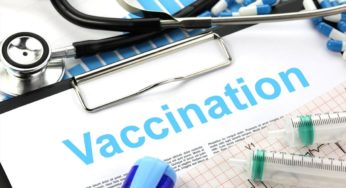
At the beginning of January the data of those infected by Covid19 in the world are almost 90 million, while the deaths are almost 2 million (World Health Organization data).
In Europe, since the beginning of the pandemic, out of a total of 26,675,456 sick people, about half have recovered (almost 14 million). Generally, in the media, it is mainly and rightly highlighted the deaths that in the Old Continent have reached the significant figure of almost 600 thousand people.
Covid19 patients, as we know, can be asymptomatic, but unaware transmitters of the virus.
Patients with symptoms, in many cases similar to those of influenza, are treated with drugs at home or, in more severe cases, in hospitals.
According to a recent study conducted at the San Raffaele in Milan (November 2020) there are currently no specific drugs to treat the disease, however, experience in the field indicates the most frequent use of:
antivirals such as remdesivir that is used mainly in the early stage of the disease; although approved as a drug, the WHO has doubts about its effectiveness in reducing mortality. This position, however, has been criticized as it would seem to be truly effective when administered in time. Other antivirals are being tested.
Immunostimulants are used to stimulate the body’s antibodies against the disease at an early stage.
One can, for example, transfer plasma from a cured patient to a sick one.
The effectiveness of this therapy in many hospitalized patients is empirically reported especially by the operators who have used it.
There are many healed people who donate their plasma for the benefit of those who are still ill.
Moreover, there are many studies in progress that will give more precise indications on the scientific validity of plasma administration, under certain operating conditions.
With regard to monoclonal antibodies produced in the laboratory, they may represent an excellent possibility to fight the virus, especially in the early stages of its manifestation. Currently, numerous scientific experiments are underway for their concrete use.
At San Raffaele is also being studied the use of interferon 1.
In severe cases, where patients’ immune responses to the virus are disproportionate, corticosteroids are often used, one of which, cortisone, is known to most as a powerful anti-inflammatory.
Corticosteroids should always be used under strict medical supervision, because of the effects they can cause to the body if they are not the most indicated for the patient at that moment.
According to many studies carried out recently, these drugs would reduce mortality due to Covid19 by 30%.
The anticoagulant heparin, moreover, in the most severe cases is administered in addition to prevent thrombi in the organism tried by inflammation.
Inhibitors of inflammatory cytokines.
Cytokines, in fact, are present in high quantities during the course of the disease and inhibitor drugs are already on the market, used in fact against rheumatoid arthritis.
Scientific studies are in progress to verify their real effectiveness on Covid patients19.
Continuing on the Ariadne’s thread of hope, it is necessary to understand when a treated patient becomes negative and for how long he/she can remain immune.
There are not many studies, at international level, dedicated to this topic.
The immunity question
Mount Sinai Hospital in New York has tested about 30 thousand Covid patients in a mild form and found an average immunity of about 5 months compared to the contraction of the disease in a study published in the journal Science.
The study carried out by La Jolla University in California, on the other hand, on 185 patients between 19 and 81 years of age, estimated an immune response from the 7th day after infection. An increase in antibodies between the second and third week of the disease was observed close to 100%, moreover the research shows that many patients manage to develop a long-term immunity.
According to a study from Monash University in Australia, published in Science Immunology, immunity to Covid19 should last at least 8 months after infection.
Research in South Korea published in Emerging Infection Disease came to the same result.
Man, it is clear, is fighting a tough battle against a coronavirus that mutates continuously and that has manifested variants that are transmitted much more easily (think of the English mutation, the South African one, the U.S., etc..) and that attacks age groups that increasingly include young people.
We know that deaths have recently increased with greater frequency and that States are acting on several fronts to contain and win the challenge with the pandemic.
Vaccines
Essential to win the battle against the invisible enemy is the vaccination campaign that has now started in almost all the world.
For the first time in history we are using vaccines that directly inform our DNA of the existence of the Spike protein, that of the virus. The goal of these mRNA vaccines is to prevent the spread of coronavirus in cells, informing them of the existence of a specific protein that must be fought with antibodies.
According to some scientists, these types of vaccine are easily “adaptable” to the variants of the virus circulating in the world because it would be enough to introduce into the cells the new “information” needed to fight them.
The most widely used mRNA vaccines in question currently are: Pfizer-BioNTech and Moderna.
The first has been tested, with unprecedented speed, on 43 thousand people, finding an effectiveness against the virus of 95%.
The second has been tested with similar timing on 30 thousand people and shows positive results on 94% of people.
Regarding immunity, there is also talk of a two-year reprieve from the coronavirus, but there are still no certain data on this aspect.
The spectrum of traditional vaccines is broader.
In Great Britain, Astra Zeneca has been produced; in Italy, ReiThera’s vaccine, produced in collaboration with the Spallanzani Institute in Rome, is currently being tested.
The pharmaceutical company will be able to produce 100 million doses per year. By 2021, 20-25 million units of product will be available.
Funding for the project so far has been provided by the Lazio region along with MIUR. To continue, in acceleration as the tragic pandemic situation requires, it is necessary a greater participation of state financial resources.
The thread of hope, therefore, is weaving its web with determination.
The darkness is still there, it’s scary, but we can see more than one light at the end of the tunnel.
Cristina Palumbo Crocco



